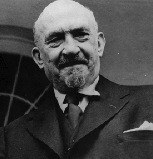
In history, it's a bit arbitrary to choose any moment and call it the beginning.
But that meeting between Dr Chaim Azriel Weizmann and Lord Balfour, in 1906, is as good a place as any. After all, one signed the declaration and the other became Israel's first president.
Dr Weizmann (pictured) was a useful man to have in Britain. Born in Belarus, he studied in Germany and Switzerland, before moving to Britain as a chemistry lecturer. If he had played no part in politics, he would have been known only in the scientific world as the Father of Industrial Fermentation.
Or, even better from the point of view of Britain, as someone who'd worked out an efficient way of producing acetone. As this is the main ingredient in cordite, this was later a tremendous contribution to the Allied war effort.
Back in 1906, Dr Weizmann was conducting his experiments and lecturing chemistry students at the University of Manchester. Lord Balfour was the local Member of Parliament, as well as the Prime Minister, hence it was to him that the chemist turned with his dreams for the future.
Nobody could deny that the Jews had suffered centuries of anti-Semitic persecution, throughout the world and particularly in Europe. Balfour didn't even try. Dr Weizmann's point was that this was possible because there was no Jewish state to defend them. As a community marginalized in every country on Earth, it was easy to become scapegoats for each nation's ills.
Lord Balfour listened politely. He was on a campaign trail for re-election. Just like any politician, he'd listen to anyone and anything, as long as it would gain him a vote.
Yet Balfour did have a suggestion. Britain also owned Uganda and this wasn't the first time that a Zionist had tried to make a case for a homeland. In 1903, the Ugandan Colony Secretary Joseph Chamberlain had already offered a substantial area of it to be used as a Jewish state.
The Zionists had turned him down; as Dr Weizmann did with Balfour mentioning the same now. They wanted the promised land of Israel and nowhere else would do.
"Mr. Balfour, supposing I was to offer you Paris instead of London, would you take it?" Dr Weizmann recalled the conversation in his memoirs.
He said that Lord Balfour sat a little straighter in his chair, as he pointed out, quite reasonably, "But Dr. Weizmann, we have London."
"That is true, but we had Jerusalem when London was a marsh."
Britons are used to being the ones with all of the history, so this obviously struck a chord. Lord Balfour asked, "Are there many Jews who think like you?"
"I believe I speak the mind of millions of Jews," Dr Weizmann spoke earnestly, "whom you will never see and who cannot speak for themselves."
With a politician's eternal assessment, Lord Balfour concluded, "If that is so you will one day be a force."
Then promptly did nothing about it at all. If promises were made, then they were vague enough to ignore. Especially since Balfour's Conservative party promptly lost that general election.


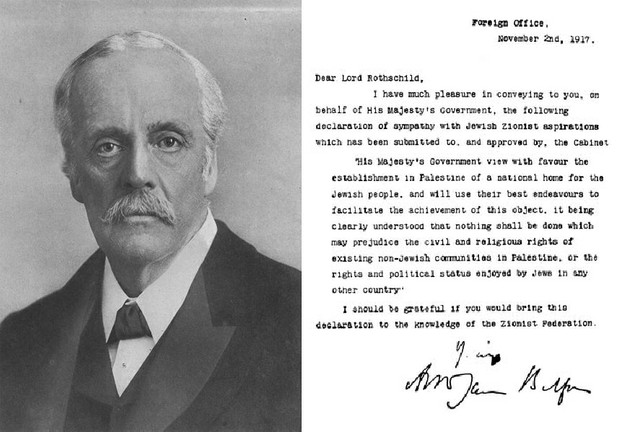
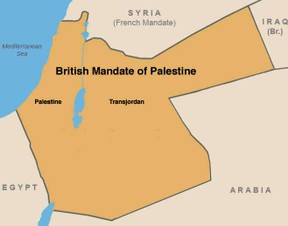 What you see above is the Balfour Declaration in its entirety, alongside the man whose signature sits at the bottom.
What you see above is the Balfour Declaration in its entirety, alongside the man whose signature sits at the bottom.






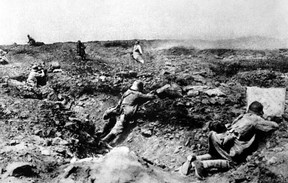 By the time Arthur James Balfour, 1st Earl of Balfour, returned to power, Britain was at war.
By the time Arthur James Balfour, 1st Earl of Balfour, returned to power, Britain was at war. 


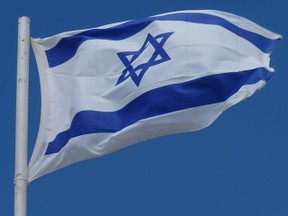 Lord Balfour had taken seriously the impression left, by that 1906 conversation with Dr Weizmann, that there was a Jewish force out in the world, just waiting to acquire allies. If there was one thing that Britain needed in 1917, it was allies.
Lord Balfour had taken seriously the impression left, by that 1906 conversation with Dr Weizmann, that there was a Jewish force out in the world, just waiting to acquire allies. If there was one thing that Britain needed in 1917, it was allies.



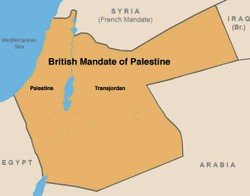

 St Tydecho's Churches in West Waleson 09/03/2014
St Tydecho's Churches in West Waleson 09/03/2014
 Goodies for an Outlander Premiere Partyon 03/06/2015
Goodies for an Outlander Premiere Partyon 03/06/2015
 Holocaust Memorial Day Interview with Rainer Höss, Grandson of Rudolf Architect of Auschwitzon 01/24/2015
Holocaust Memorial Day Interview with Rainer Höss, Grandson of Rudolf Architect of Auschwitzon 01/24/2015
 Romantic Valentine Gifts for an Outlander Fanon 01/16/2015
Romantic Valentine Gifts for an Outlander Fanon 01/16/2015

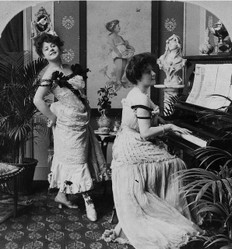

Comments
I'm going to be completely honest and say that it's the early hours of the morning for me, hence I'm too tired to get into the ins and outs of Zionism, Israel and that whole history.
I've scanned your comments for appropriate language. Thank you for not sinking back into profanities. You have surprised me coming here rather than here: http://wizzley.com/the-women-who-foug... But otherwise I'll pick this back up tomorrow, if I have time.
Busy day. Slightly too busy to deal with pseudo-historians. But well done on finally doing some research and coming close to discovering that my BA dissertation was on the Porajmos. I'll leave you to look that one up.
Since Miss Harrington took her BA in Holohoax Studies I will begin with the following salient points. The Arabs were not responsible for the "gas chamber" hoax; the fact that Haj Amin al-Husseini engaged in minor collaboration with the Nazis does not rebut the point. The Palestinians have no responsibility for what the Germans supposedly did.
Next point. Miss Harrington knows nothing about the Holohoax. The German records of the Auschwitz concentration/labor camp, where four million Jews were supposedly murdered by the Nazis, suffered 150,000 deaths during the war from disease and typhus, plus a few shootings and hangings. No records speak of "gassings". Secret intercepts taken by British cryptographers in codes the SS though secure make no mention of the gassings supposedly taking place. Four or more forensic tests of the so-called "gas chambers" show that they were nothing more than morgues for storing typhus diseased bodies until they could be safely burned. The buildings were never properly sealed or heated to function as "gas chambers". They contain no "Prussian Blue" stain on the walls as they surely would had "gassing" actually been taking place. The forensic tests, then, and the suppressed German records buried in the Soviet archives and not presented to the kangaroo Nuremberg Court, are both telling the same story.
Nuremberg was a kangaroo court run by Jews behind the scenes. Of 3000 total personnel at the trials, 2400 were Jews. It was the Zionist Jew, David "Mickey" Marcus, who chose all the personnel for the trial. Another major Jewish player was the Wall Street investment banker, Ernst Englander. The Prussian Jew, Robert Kempner, was a prominent prosecutor. Miss Harrington thinks she "knows something" about the Holohoax. Everything she thinks she knows is wrong.
The basic idea behind Zionism was the incompatibility of Jew and gentile. Chaim Weizmann once stated that 'whenever the number of Jews exceeded the saturation point in any country, "that country inevitably reacted against them. It was a universal law of history that could not be confused with anti-Semitism in the ordinary and vulgar sense." The Zionist movement grew up side by side with the Communist movement in the Czarist empire. The basic division in ranks was: Jewish Communism in Russia or Jewish Communism in Palestine.
The early Jewish Zionists in Palestine were Labor Socialist Marxists, many of them members of Dov Ber Borochov's Poale-Zion Party. One of the many motivations of His Majesty's Government in issuing the Balfour Declaration was to wean the Jews away from Marxist agitation by promising them a home in Palestine. These facts are today generally forgotten because conservative sell-outs to the Zionists wish to pretend that Israel is an expression of western values, something it most assuredly is not.
Although Palestine never had an independent political existence, the claim that the Palestinans were merely immigrants from other lands or immigrants from Egypt in the mid-19th century, is nonsense. It is standard Zionist propaganda. The farmers of Palestine were exporting grain to France in the 17th and 18th centuries to avert starvation. In the 18th and 19th centuries, Palestinian cotton was a principal Palestinian export crop. When American cotton was cut off from England during the American Civil War, the British got their cotton from Arab Palestine. Please note that the first Zionist colony in Palestine, Petakh Nivah, the Gate of Hope, was not established until 1878 when it was abandoned and then restarted following the assassination of Czar Alexander Two.
The ancient Jews were only one of many peoples in Palestine and were never the sole nor exclusive occupants of the land. The Greeks, Romans and others were also in Palestine - and were there even longer than the Jews. Although mainstream Zionist historians will deny it, Russian Jewry is in act descended from Khazars and Slavs converted to Judaism from 740 to 969 A.D. They have no right to "return" to a land they were never in. Besides, ancient history does not give title in the modern world. The Arabs are not entitled to an Arab state in Spain because of the Moorish occupation.
Zionism is nonsense - and the only reason anyone pays attention to it is because all the politicians are owned by Jewish money.
I think it's beautifully presented with some great points, but it's also heavily weighted towards a pro-Israeli point of view. It begins by saying 'don't blame one side or the other', then promptly does so.
This video clears up some of the common misconceptions regarding the Palestinian- Israeli conflict. I suggest that everyone watch this and share it. I saw it today on Facebook and decided to share it with you. Please tell me what you think.
https://www.facebook.com/video/video....
That's the thing with history, the reverberations go on and on. This is where the true butterfly effect takes place, though in this case it was a little more than insect flapping its wings.
Thank you for your take on this.
You're very welcome. :)
this is a great intro to the troubles, thank you
Part 2
3, I'm totally with you in all that you've said here. If the Jews had accepted Uganda at the time, then the same situation could well be playing out with Ugandans instead of Arabs on the other side of it. It was a proposal which was intensely debated in the Zionist Federation, at the beginning of the 20th century, but ultimately turned down. I can understand why, for all of the reasons that you've already outlined.
I should declare something here, which probably hasn't cropped up in conversation before. I'm British and usually concerned with British history, but that isn't to say that I'm brand new to these issues.
My BA dissertation was about the Holocaust. For many years, I organized Holocaust Memorial Day at the local University. It was my job to arrange special guests and speakers, book the hall and produce the marketing, as well as sell tickets. On the evening, I would meet our main speaker, who was always a survivor of a death camp, then take them out for dinner.
I've seen those terrible tattoos first hand and heard stories which never made it into the history books. I'm not anti-Jewish.
I also had a Palestinian friend, who grew up on the West Bank. I was with her during the Battle of Jenin. Though she was safely out of there now, her grandmother was in the middle of it. She was terrified, not knowing if her Nan was alive or dead. I've heard stories from her which never made it into the newspapers. I've not anti-Palestinian.
I can see the point of view on both sides of the equation; and I'll condemn human rights abuses on whichever side that they are committed. The only country for which I'll cut no slack is my own.
The British acted appallingly in all of this; and it's not like the Lloyd-George government didn't know the likely outcome. We've had Ulster demonstrating quite bloodily for the past 400 years.